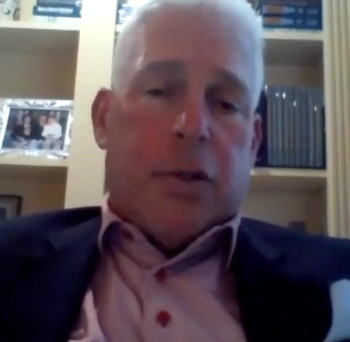
New survey from American Medical Association identifies the continued burden of prior authorizations on physicians.

Laura Joszt, MA, is the vice president of content for the managed care and pharmacy brands at MJH Life Sciences®, which includes The American Journal of Managed Care®, Drug Topics®, Managed Healthcare Executive®, and Pharmacy Times®. She has been with MJH Life Sciences since 2011.
Laura has an MA in business and economic reporting from New York University. You can connect with Laura on LinkedIn or Twitter.

New survey from American Medical Association identifies the continued burden of prior authorizations on physicians.

Safe and effective long-term treatment is important for stable disease control in atopic dermatitis.

Patients with eosinophilic esophagitis (EoE) are faced with delayed diagnosis, burdens related to symptoms, quality of life and cost, but lack targeted systemic therapies to improve long-term disease control.

In their general session, Adam J. Fein, PhD of Drug Channels Institute, and Doug Long of IQVIA reviewed the current specialty pharmacy space, ongoing trends and future expectations.

In patients with chronic rhinosinusitis with nasal polyps, the 12-item Patient Reported Outcomes in Chronic Rhinosinusitis had a stronger correlation with type 2 inflammatory biomarkers than a more widely used measure.

Despite missing the primary end point of significantly reducing oral corticosteroid dose, patients with asthma on Tezspire in the SOURCE trial received other benefits from the drug.

Interviews with caregivers of children with asthma highlight the ways they identify and mitigate asthma triggers across different places, such as home, neighborhoods, and schools.

The standard of care does not control chronic rhinosinusitis with nasal polyps for a third of patients, but approved biologics may improve quality of life (QoL).

A therapy that rapidly demonstrates improvements in clinical outcomes may have a positive impact on medication adherence.

Research presented at the 2022 American Academy of Allergy, Asthma & Immunology (AAAAI) Annual Meeting found minority patients with asthma perceived lower quality interactions with their care team, but did not find significant differences in the prescription of biologic medications across racial/ethnic groups.

Despite the promise of savings billions of dollars in the United States, adoption of biosimilars has been slow. A roundtable discussion among employers highlighted some of the barriers, including formulary design and drug pricing and rebates.

During the state of the industry webinar, AHIP experts reviewed policies and solutions to improve affordable access to care and shape healthcare in the post-pandemic world.

The conclusion of the pre-print meta-analysis is that small effect of "nonpharmaceutical interventions" on COVID-19 mortality rates did not outweigh the effects of lockdowns.

Biden is reviving the program he headed as vice president with the goal of reducing the cancer mortality rate and improving the experience of patients and their loved ones.

Price increases on promising non–small cell lung cancer drugs despite evidence price competition raise concerns about affordability.

Although systemic therapy improves survival for patients with advanced unresectable hepatocellular carcinoma (HCC), uptake was low and dose reductions were common, according to a real-world Canadian study.

The introduction of an electronic tracking system decreased the time from hepatocellular carcinoma (HCC) diagnosis to treatment by more than a month.

Despite calls for better integration of social care into healthcare delivery, the lack of adequate payment models has stymied efforts to improve health and reduce costs by paying for social interventions.

George Van Antwerp, pharmacy and PBM leader of Deloitte, presents at the Asembia 2021 Specialty Pharmacy Summit and shares framework of specialty pharmacy.

Steve Peskin of Horizon BCBS of NJ, executive medical director of Population Health at Horizon Blue Cross Blue Shield of New Jersey, shares forms of value-based contracting between payers and pharmaceutical companies.

Treating insomnia with commonly prescribed, older generation medications increases health care resource utilization and costs in patients with comorbid conditions.

Earlier treatment of multiple sclerosis with disease-modifying therapy reduced the chances of a sharp decrease in income, according to Swedish researchers.

People with MS who are at risk for joblessness have poorer health-related habits and lower “locus of control” scores, according to findings by Kessler Foundation researcher Lauren Strober.

Study found that while frequency of cancer among people with multiple sclerosis (MS) increased over time, the overall cancer risk is similar between patients with MS and the general population.

Experts discuss the falsehoods and half-baked ideas that are in circulation about COVID-19 transmission, treatment and equivalence to the flu.

As more competition makes its way into the specialty drug market, there will be opportunities for cost savings.